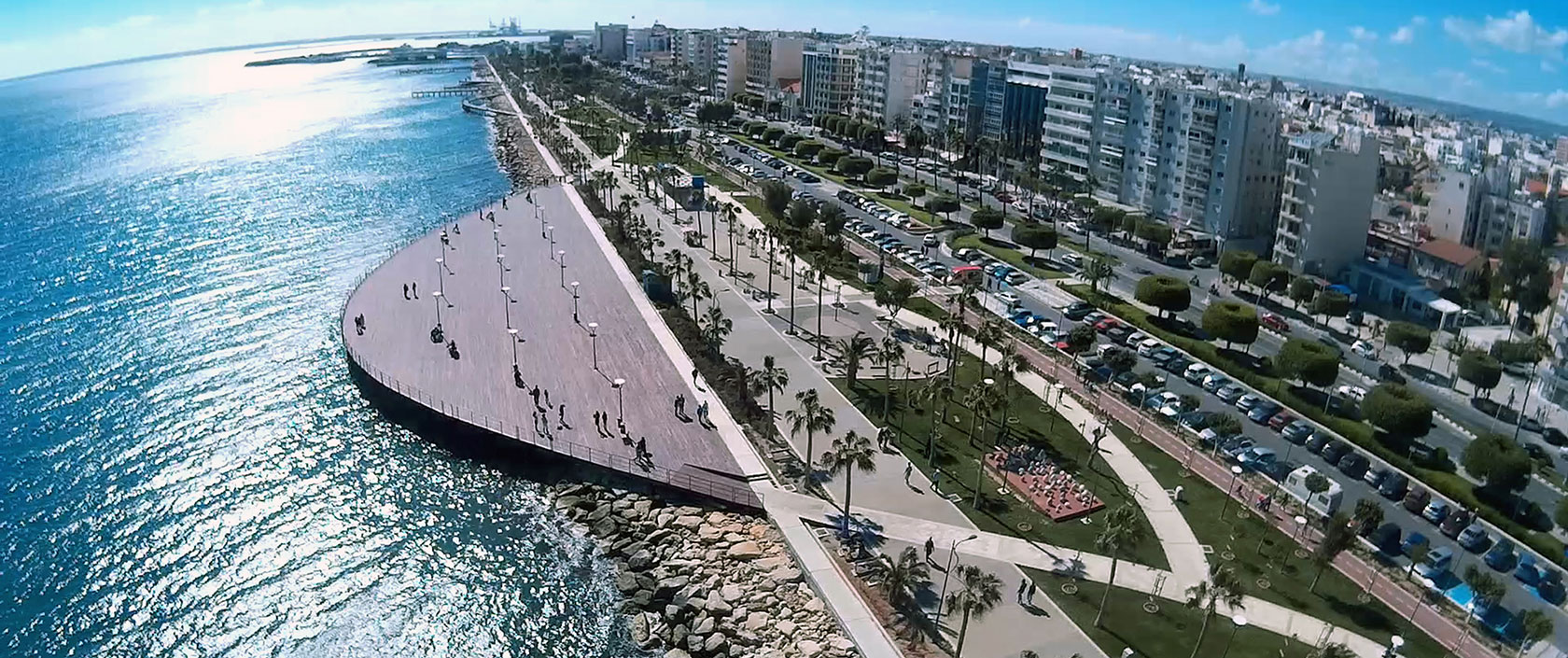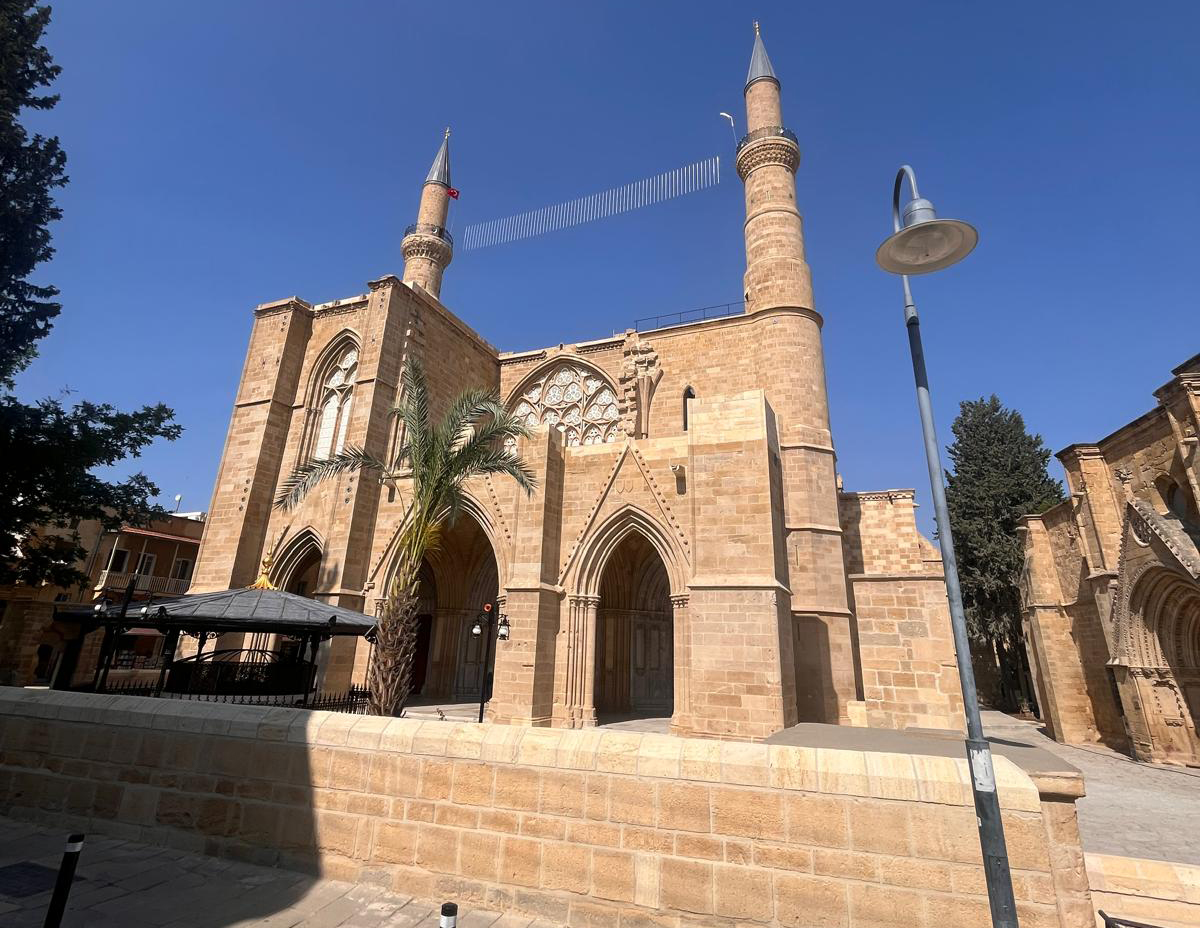Church bells rang and children paraded through the streets
While Jimmy Carter’s election as president of the United States in 1976 may have been a close-run contest, it was greeted with almost unanimous elation in Cyprus.
Church bells rang across the island to hail his victory, while schoolchildren paraded through the streets to express their joy and optimism that the new man in the White House may bring about a solution to the Cyprus problem, two and a half long years after a Greek-inspired coup d’état and a Turkish invasion which had left the island reeling.
Archbishop Makarios III, still president of Cyprus at the time, said he hoped Carter’s election would mark “the beginning of a new chapter” in relations between Cyprus and the US.
“Your victory has been hailed with great joy and expectation by the Greek people of Cyprus, who deeply appreciated your constructive attitude on the Cyprus problem as it was so clearly set out in statements you made during the election campaign,” he said.
Carter had been seen by Greeks and Greek Cypriots as a possible ally as he campaigned against incumbent Gerald Ford in 1976, with Ford and his Secretary of State Henry Kissinger viewed as at least in part culpable for the events of 1974.
Makarios said Greek Cypriots “regard [Carter’s] victory as a victory for the democratic principles to which the American people are dedicated”.
“I am convinced that your election will mark the beginning of a new chapter in relations between your great country and Cyprus. May God bless you and strengthen you,” he added.

Cypriot joy at Carter’s election was not a government-led feeling, however, as Frixos Savvides, 15 years old at the time, who went on to serve as Glafcos Clerides’ health minister between 1999 and 2003, explained to the Cyprus Mail on Monday.
“This was not a reaction proposed by the government or any minister. It was a spontaneous reaction of ordinary people to the fact that a democratic candidate had been elected as president of the United States,” he said.
“It was an instant reaction and we expected him to help us with our problem. It was an instantaneous expression of relief. They were parading through the streets out of relief that change had come and that it was the end for the old regime, and for Kissinger.
“They really did ring the church bells and people really did parade through the streets.”
Takis Hadjidemetriou was a serving MP for Edek at the time, and told the Cyprus Mail, “it is a fact that there was a feeling of optimism, and that church bells were ringing”.
“There was a sense of satisfaction, because Carter had during the campaign made statements about displaced persons, about how they would have the right of return. This helped create that feeling of optimism,” he said.

The Cyprus Mail’s issue on November 5, 1976, three days after Carter had been elected, spoke of how “several hundred schoolchildren left their classrooms and marched to the United States’ embassy with placards demonstrating their welcome” for Carter’s victory.
“The demonstrators, boys and girls, carried Cyprus and US flags side by side. One placard said, ‘Carter, in your face, we see the freedom of Cyprus’, and another, ‘Carter, send away Kissinger’,” the article added.
The Famagusta Refugees’ Movement were quoted by the Cyprus Mail as having said, “Cypriot refugees rely on your constant efforts in the search for a fair solution to the Cyprus problem and the possibility of return of all refugees to their homes in peace and security”.
In the same issue, then-House President Spyros Kyprianou, who would become acting president upon Makarios’ death the following August and then win the subsequent presidential election, spoke about his meeting with then-Greek Prime Minister Konstantinos Karamanlis about the Cyprus problem and Carter’s election.
Kyprianou had said Karamanlis had told him that Carter’s election would predicate “more room for further moves on the Cyprus problem”, though he himself was more reserved, saying Carter’s positions “coincided with the basic provisions of the United Nations resolutions”.
“It is not possible to make a forecast as regards specific issues, but I believe that developments in the US in general … are creating conditions for more favourable developments and justify hope for better days for our country,” he said.
However, despite that hope for better days in Cyprus, as Takis Hadjidemetriou put it to the Cyprus Mail, “in the end, it did not turn out as we would have hoped when the church bells were ringing”.
Frixos Savvides told the Cyprus Mail that “developments were not quite as we had expected and hoped”.
Carter appointed a special envoy to Cyprus, named Clark Clifford, and, together with the United Kingdom and Canada, he worked to put together a plan to solve the Cyprus problem, which he submitted in 1978.
The plan, named the Anglo-American-Canadian plan, was based on the 1977 High Level Agreement reached between Makarios and then-Turkish Cypriot leader Rauf Denktash, shortly before the former’s death.
It stipulated the creation of a bizonal, bicommunal federation in Cyprus, and provided for the return of land to Greek Cypriots with compensation for those who wished not to return to their former properties, and the reopening and restoration of Varosha.
It also foresaw the withdrawal of most of the Turkish troops stationed on the island.
Both Disy and Akel initially backed the plan, though Akel later changed its mind thanks to interventions made by the Soviet Union.
Spyros Kyprianou rejected the plan, and Cyprus remained divided, though in a 2015 article in the Cyprus Mail, his foreign minister Nicos Rolandis described the plan as “the best plan we ever had” and said he had disagreed at the time with Kyprianou’s rejection.
Former foreign ministry permanent secretary Andreas Pirishis wrote in the Cyprus Mail in May that Kyprianou had rejected the plan “not because of its provisions and content, but because of its origin”.







Click here to change your cookie preferences